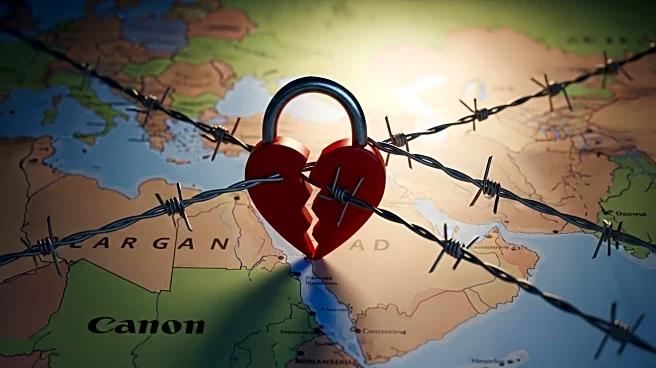What's Happening?
The family of Israeli hostage Alon Ohel has expressed grave concerns over his health following the release of a video by Hamas. The video shows Ohel with impaired vision, unable to see in his right eye, and experiencing difficulty focusing. The family has consulted eye specialists globally, confirming the severity of his condition. They have called on Hamas to provide adequate medical treatment, citing international law obligations to protect the health of captives. Ohel holds Serbian and German citizenship, and his family is seeking assistance from U.S. Special Envoy to the Middle East Steve Witkoff, as well as officials in Serbia and Germany.
Why It's Important?
The situation highlights the humanitarian challenges faced by hostages in conflict zones, raising ethical and legal questions about their treatment. The family's appeal to international authorities underscores the potential diplomatic implications, as multiple countries may become involved in advocating for Ohel's welfare. The case could influence international discourse on the rights of captives and the responsibilities of their captors under international law. It also reflects the broader tensions in the region, where hostages are often used as leverage in geopolitical conflicts.
What's Next?
Diplomatic efforts may intensify as Ohel's family seeks intervention from international figures and governments. Pressure on Hamas to comply with international humanitarian standards could increase, potentially affecting negotiations related to hostages. The situation may prompt discussions on improving international protocols for the treatment of captives, especially in conflict zones. Monitoring Ohel's health and advocating for his release will likely remain priorities for his family and involved nations.









